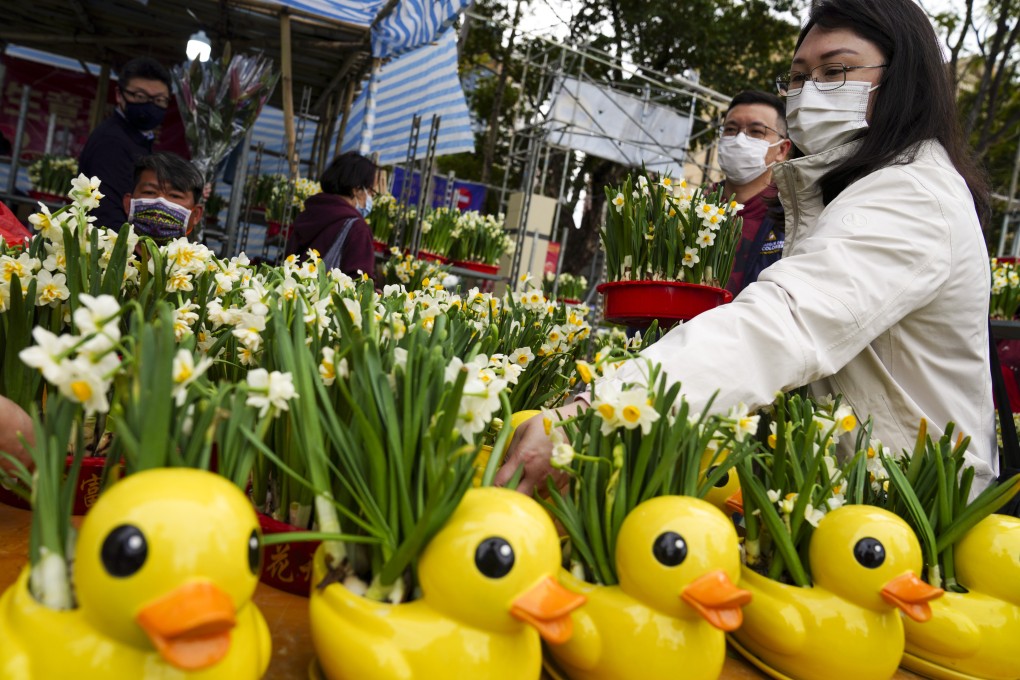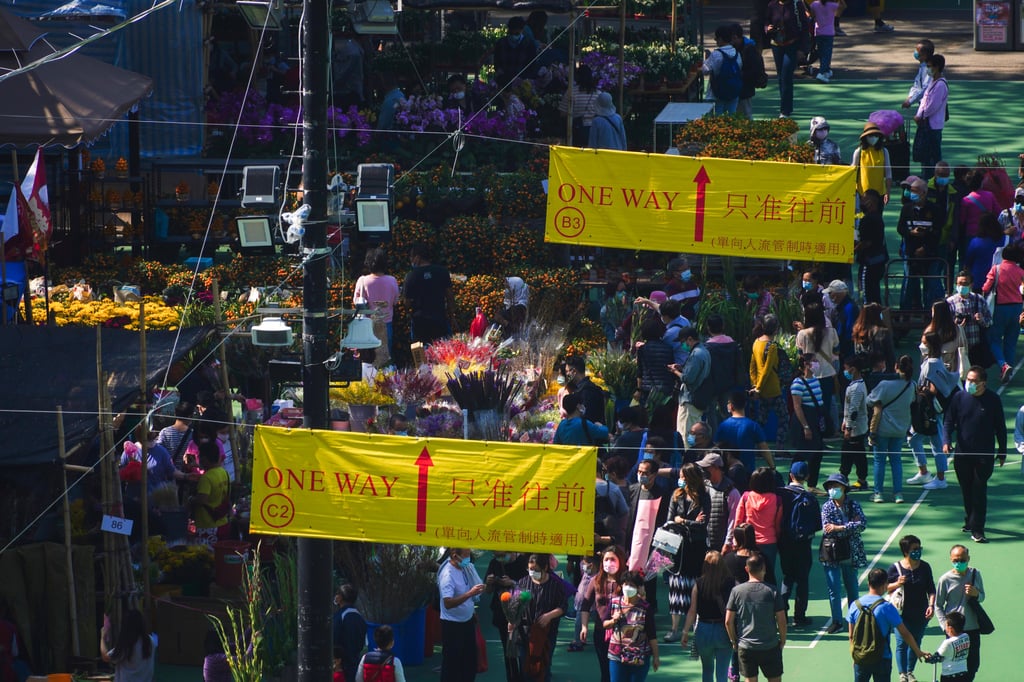Hong Kong bans dry goods stalls at Lunar New Year fair for fourth year in a row citing coronavirus concerns
- Only wet goods stalls for farmers to sell flowers will be allowed at 2023 fair, says authorities
- Dry goods stalls, which sometimes sold politically themed products, were first banned in 2020 because of ‘current social situation’

Hong Kong has banned dry goods stalls at the Lunar New Year fair in 2023, citing pandemic reasons, despite the city making recent efforts to resume normal life and host large-scale events.
In a statement on Wednesday, the Food and Environmental Hygiene Department announced that the fair would span seven days from January 16 to 22, 2023, involving a total of 922 stalls at 15 locations. An open auction for those spots will start on November 9.
But in a move that will disappoint dry goods vendors and start-up entrepreneurs for the fourth year in a row, the department said the fair will only provide wet goods stalls for farmers to sell flowers.

“Under the epidemic, it remains the case that the 2023 Lunar New Year fairs will not provide dry goods stalls,” a spokesman said. Food will also not be sold at the fairs, for the third year in a row.
“No fast food stalls will be provided to avoid increasing the risk of virus transmission through removing masks for eating,” the spokesman added.
In the past, politically themed products, as well as lucky windmills and balloons, were among the festive items popular with fair-goers. But in 2020, officials cited the “current social situation” – a reference to the anti-government protests at the time – as the reason for prohibiting the sale of dry goods at the fairs.
While the festival was considered an important time for flower farmers to sell their produce, some start-ups and small businesses, including secondary school students, have used the occasion to test their business skills.
